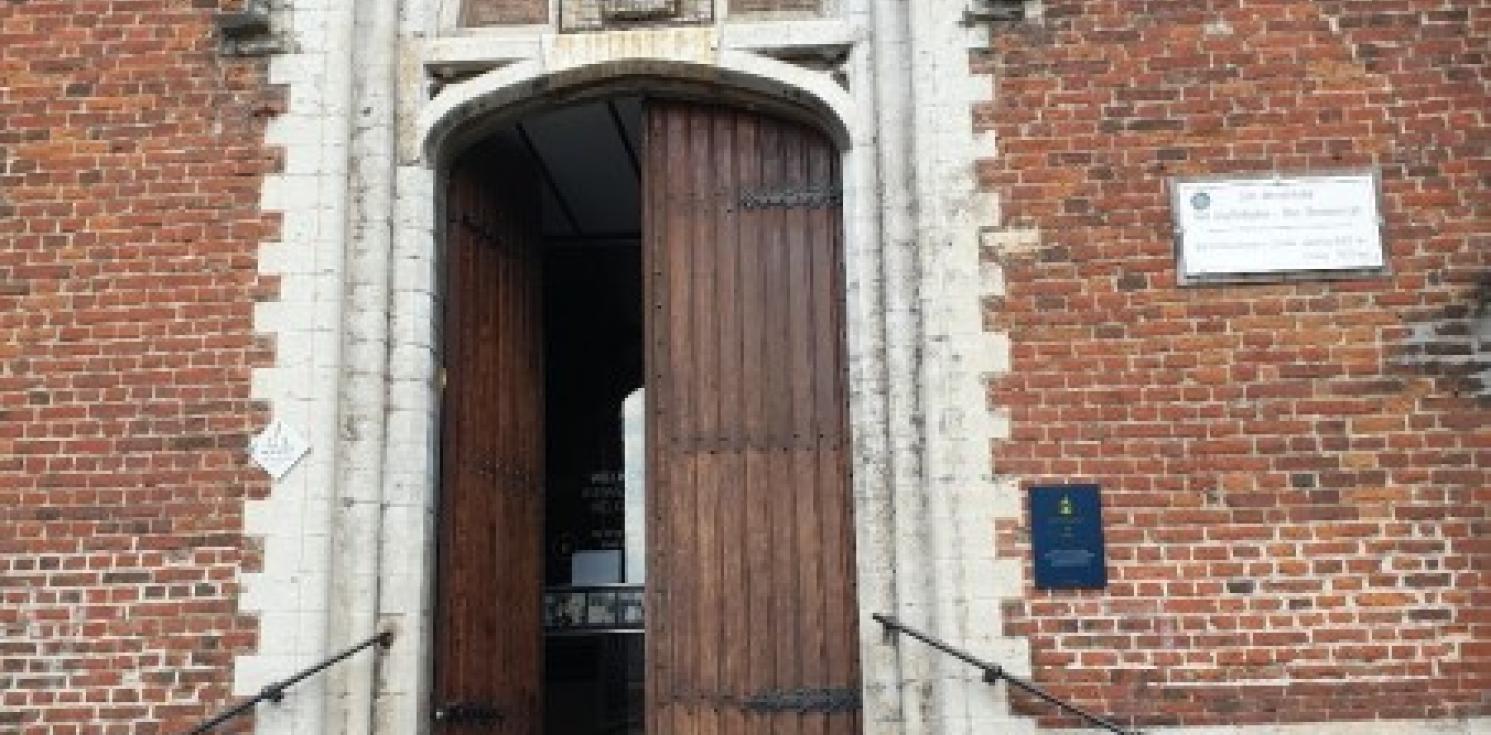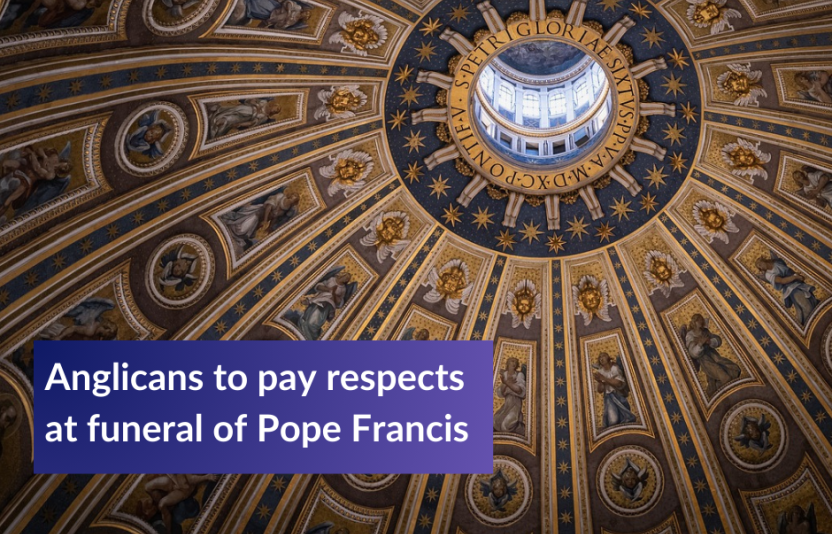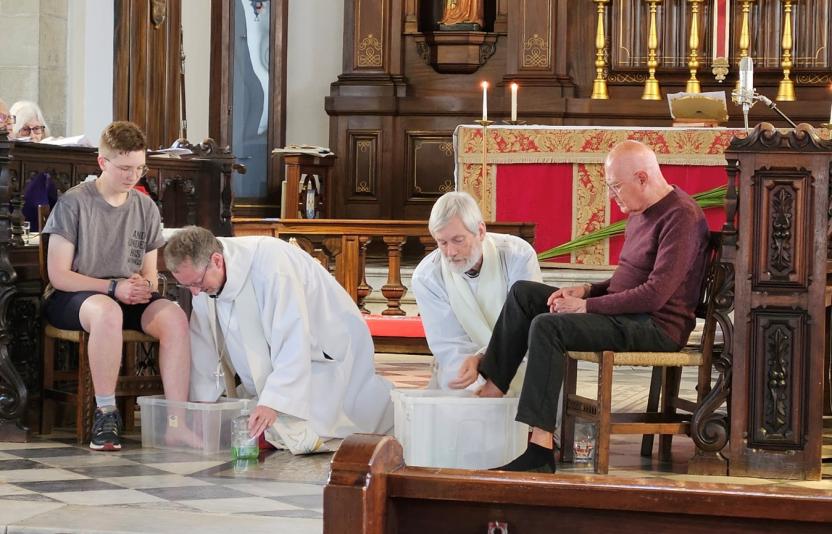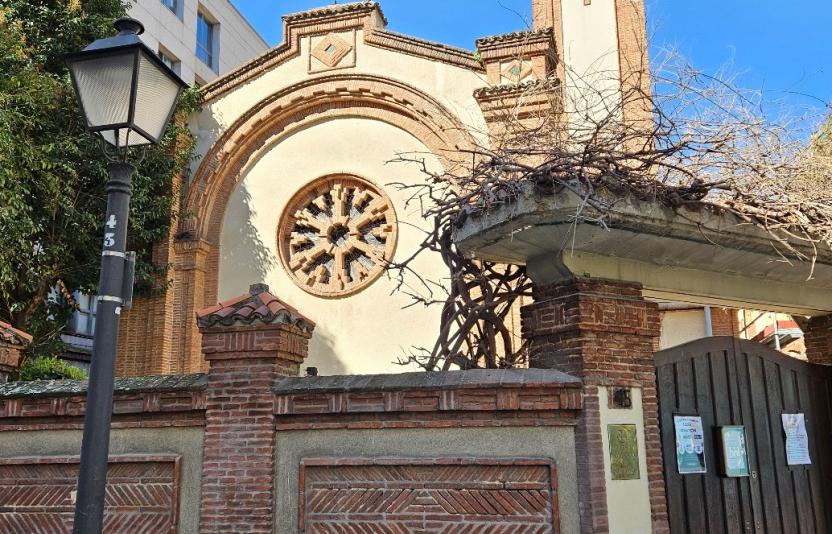Licensing Catriona Laing in the Crypt of St Anthony’s Chapel Leuven

Taken from Bishop Robert's blog here.
I have visited the Flemish university city of Leuven many times, but this was my first visit to St. Anthony’s Chapel. Our Anglican congregation of St. Mary and St. Martha have been meeting in the crypt of this chapel since the outbreak of Covid forced them to move from the university chapel of Justus Lipsius. People come on pilgrimage to St. Anthony’s from all over the world because, since 1936, the crypt has been the final resting place of a man sometimes called ‘the greatest ever Belgian’: Fr Damien.

Fr. Damien (or St. Damien of Molokai) was a Roman Catholic priest who ministered for 11 years in the Kingdom of Hawaii to people with leprosy. The lepers were held by the government in compulsory quarantine on the peninsula of Molokai. Fr. Damien taught the people the catholic faith, cared for the sick, inspired community building projects such as schools and hospitals, and buried the dead. Perhaps inevitably, he contracted leprosy himself. But he continued his work for a further five years until his death in 1889 at the age of 49.
In 2009, I represented the Anglican Church at a service in the Brussels National Basilica to mark the canonisation of Fr. Damien. The cavernous Basilica was packed to capacity: it was easily the largest religious gathering I have attended in Belgium. The sense of love and devotion to the memory of a truly remarkable man was palpable.
Now in 2021, I found myself conducting a service of worship in the crypt housing Fr. Damien’s body. That was both holy and humbling. But I wasn’t in Leuven primarily to pay homage to St. Damien. Rather, this was the occasion of licensing the new Chaplain of St. Martha and St. Mary, The Revd. Dr. Catriona Laing.

Catriona’s ministry has been marked by a commitment to social justice. Before ordination, Catriona worked on humanitarian projects in Iraq, including some high-risk areas. After a curacy in London, she moved with her husband Sam to Washington DC, where she worked with the homeless and those living in shelters. After moving to Brussels, Catriona became involved in the Community Kitchen at Holy Trinity Brussels that provides food to the homeless. Alongside her ministry at the Pro-Cathedral, she also pastors the relatively small community of St. Martha and St. Mary.

Relatively small… but also a notably youthful and gifted community. Our congregation of 15 (the statutory limit) included two ordinands and a professor of biblical studies. And I’m delighted that what was once an entirely student community now has families and older people too.

The New Testament reading set for the evening was 2 Corinthians 4:13-5:1. The passage includes one of St. Paul’s most important statements of Christian hope: ‘For this slight momentary affliction is preparing us for an eternal weight of glory beyond all measure.’ I wondered how far Fr. Damien had been inspired by this verse, or verses like it.
I reminded myself (and the congregation) of the depth and extent of Christian hope, which overflows the limitations of this life into the resurrection of the body, the reconciliation of people with each other and with God, and the life of the world to come.
There is, after all, an irredeemably supernatural dimension to the Christian life. We do not hope merely for this life, and death is not the worst thing that can happen to us. The Christian saints and martyrs, such as Damien, lived with a strong sense of a goal that was eternal and that was linked with notions of judgement and life after death.
For all Christians, this conditions not just our attitude to the future but how we live in the present. We will one day be called to account for how we have lived, whether we loved our neighbours, whether we pursued ‘justice and only justice’. That creates powerful moral imperatives in our present time.
Covid is not without parallels to leprosy (or Hansen’s disease as we now call it) in terms of contagion, isolation and quarantine requirements. However, we are this year blessed with vaccines against Covid. But, whereas 1 in 4 people have been vaccinated in high-income countries, that proportion falls to less than 1 in 500 in low-income countries – staggeringly worse. We must share the know-how – licensing, patents, recipes, materials – and the excess vaccines we are stockpiling. It is a moral issue. It’s a justice issue.
The example of the saints and martyrs is on the one hand a wonderful encouragement to hope, if we follow their example, but perhaps also a warning of judgement, if we do not… And in what felt like a divine co-incidence, the congregation had decided that the collection taken at the service should go to Christian Aid for use in promoting distribution of vaccines to poorer countries.


